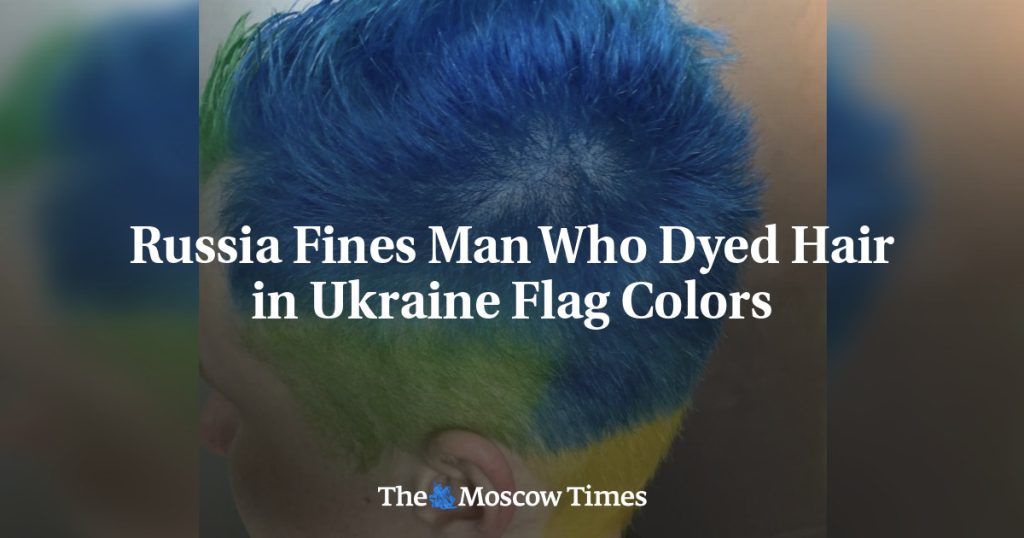A Moscow resident with dyed hair in the colors of the Ukrainian flag was found guilty of “discrediting the army” and fined by a court. Stanislav Netesov, who had visited a police station to report a crime after being attacked, was charged after officers saw his colored hair. The court accused Netesov of showing a negative attitude towards the Russian Armed Forces with his green, blue, and yellow striped hairstyle. Despite his claims that the hairstyle had nothing to do with Ukraine and that he had been dying his hair in bright colors since 2017, he was fined an undisclosed sum, reported to be 50,000 rubles ($550).
Netesov stated to the OVD-Info rights group that his hair color was an “accident” and that he did not support either Russia or the “Ukrainian regime.” This incident highlights the strict enforcement of laws in Moscow, where public criticism of Russia’s offensive in Ukraine has been deemed illegal since the conflict began in February 2022. Thousands of individuals have been detained for minor acts of protest in the city since then. In a similar case in November 2023, a man was sentenced to 10 days in jail for allegedly writing “No to war” on a snow-covered turnstile outside a skating rink in Moscow, showcasing the harsh consequences of dissent in the city.
The conviction of Netesov and the imprisonment of individuals like the man who left the anti-war message on the turnstile demonstrate the crackdown on dissent in Moscow. The Russian government has taken a strong stance against any form of protest or criticism of its actions in Ukraine, showing little tolerance for those who express their disapproval in public. The punishment imposed on Netesov for his hair color, despite his claims that it was not intended to show support for Ukraine, is an example of the government’s strict enforcement of these laws.
While Netesov maintains that his colored hair was not a deliberate act of expressing support for Ukraine, the court’s decision to find him guilty of discrediting the Russian army highlights the government’s zero-tolerance approach to any perceived dissent. The fine imposed on Netesov could serve as a warning to others in Moscow who may be considering any form of public protest or criticism of the Russian military’s actions in Ukraine. The case also sheds light on the risks individuals face when expressing their opinions in a country where freedom of expression is heavily restricted.
The incident involving Netesov serves as a reminder of the limitations on freedom of expression in Moscow and the consequences individuals may face for seemingly innocuous acts of dissent. The court’s decision to convict him of discrediting the army based on his hair color underscores the government’s intolerance towards any form of criticism or protest. As the crackdown on dissent continues in the city, individuals like Netesov find themselves at risk of punishment for actions that may be interpreted as challenging the government’s narrative. This case highlights the broader context of restrictions on freedom of expression in Moscow and the challenges faced by those who seek to express their opinions openly.
The conviction and fine imposed on Netesov for his colored hair reflect the harsh reality of living in a city where public dissent is heavily monitored and suppressed. The case underscores the government’s efforts to silence any form of criticism or protest, thereby limiting the ability of individuals to express their opinions freely. As the crackdown on dissent intensifies in Moscow, individuals like Netesov face the risk of legal repercussions for seemingly minor acts that may be deemed as challenging the government’s authority. This case serves as a cautionary tale for those who seek to voice their dissent in a city where freedom of expression is severely restricted.


